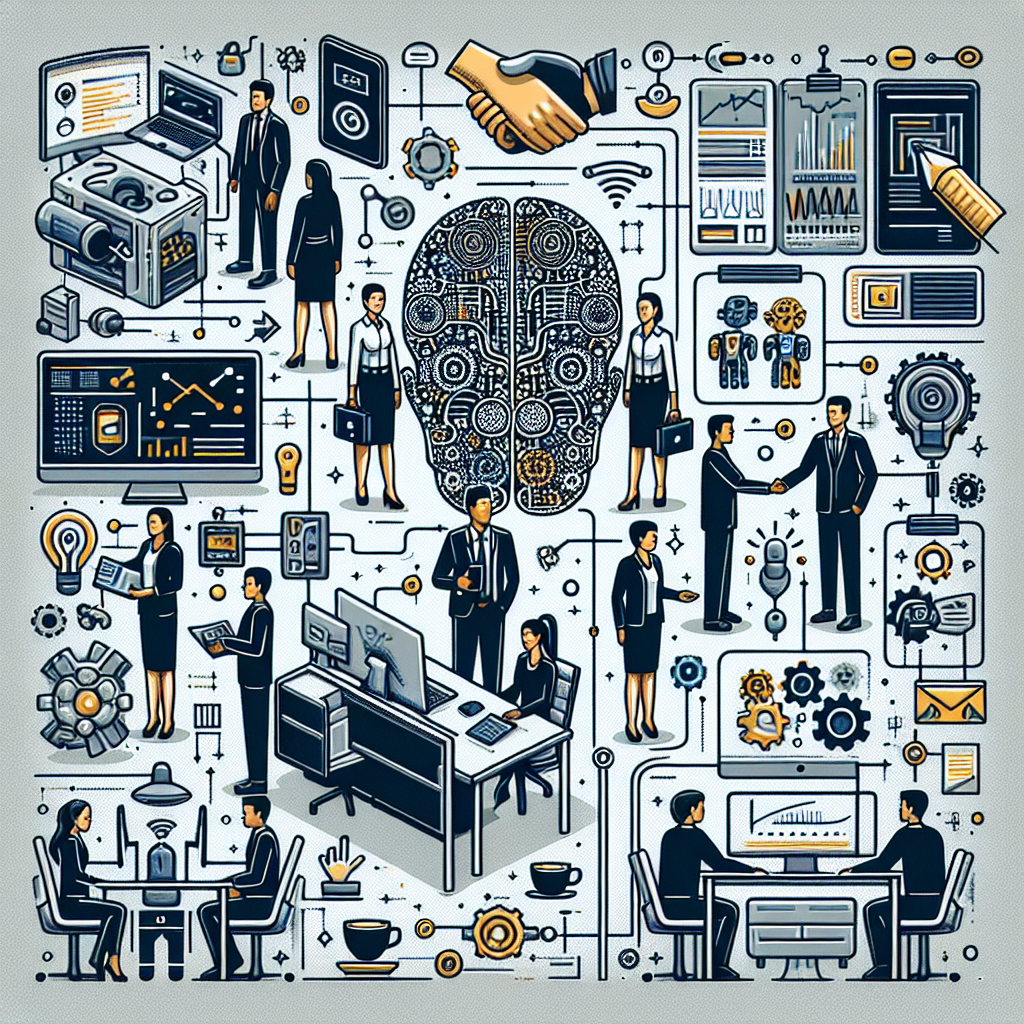Artificial General Intelligence (AGI) is a term that refers to a type of artificial intelligence that possesses the ability to understand, learn, and apply knowledge across a wide range of tasks and domains. Unlike traditional AI systems, which are designed to perform specific tasks based on pre-defined rules and data, AGI aims to mimic the cognitive abilities of human beings, such as reasoning, problem-solving, and creativity.
The development of AGI has the potential to revolutionize many industries and change the way we work. The impact of AGI on jobs and the future of work is a topic of much debate and concern among experts, policymakers, and the general public. In this article, we will explore how AGI may impact jobs and the workforce, as well as address some common questions and concerns surrounding this emerging technology.
How AGI Will Impact Jobs
The introduction of AGI into the workforce is expected to have a profound impact on the nature of work and the types of jobs available. Some experts predict that AGI will lead to the automation of many routine and repetitive tasks, freeing up human workers to focus on more complex and creative tasks. This could potentially increase productivity and efficiency in many industries, leading to overall economic growth.
However, the automation of jobs by AGI also raises concerns about the displacement of human workers and the potential for widespread unemployment. Some estimates suggest that up to 47% of jobs in the United States could be at risk of automation in the coming decades. This has led to calls for policies and programs to support workers who may be displaced by AGI-driven automation, such as retraining programs, income support, and job placement services.
In addition to the automation of jobs, AGI may also create new opportunities for employment in emerging fields such as AI research, data science, and robotics. These fields are expected to see significant growth in demand for skilled workers as companies invest in AGI technologies and applications. However, there is also concern that the benefits of AGI may not be equally distributed, leading to increased income inequality and job polarization.
Overall, the impact of AGI on jobs and the workforce is likely to be complex and multifaceted. While some jobs may be eliminated or transformed by AGI-driven automation, new opportunities may also be created in high-skilled, high-demand fields. It will be important for policymakers, businesses, and workers to adapt to these changes and ensure that the benefits of AGI are shared equitably.
Common Questions and Concerns About AGI
As the development of AGI progresses, there are many questions and concerns that have been raised about its potential impact on society and the workforce. Here are some common FAQs about AGI and the future of work:
1. Will AGI replace all human jobs?
While AGI has the potential to automate many routine tasks, it is unlikely to completely replace all human jobs. Some tasks, such as those requiring creativity, emotional intelligence, and complex problem-solving, are still better suited to human workers. AGI is more likely to augment human workers by performing repetitive tasks and assisting with decision-making.
2. Will AGI lead to mass unemployment?
While the automation of jobs by AGI may lead to some displacement of workers, it is unlikely to result in mass unemployment. Historically, technological advancements have led to the creation of new jobs and industries, as well as increased productivity and economic growth. However, it will be important for policymakers to implement measures to support workers who may be affected by AGI-driven automation.
3. How can workers prepare for the impact of AGI on jobs?
Workers can prepare for the impact of AGI on jobs by developing skills that are in high demand in the digital economy, such as coding, data analysis, and machine learning. Lifelong learning and continuous upskilling will be essential for workers to remain competitive in a rapidly changing job market. Employers can also play a role in preparing their workforce for the future by investing in training and development programs.
4. What are the ethical implications of AGI in the workforce?
The development and deployment of AGI raise many ethical questions, particularly around issues of privacy, bias, and job displacement. It will be important for policymakers, businesses, and researchers to address these ethical concerns and ensure that AGI technologies are used responsibly and ethically. Transparency, accountability, and fairness will be key principles in the design and implementation of AGI systems.
5. How can policymakers ensure that the benefits of AGI are shared equitably?
Policymakers can ensure that the benefits of AGI are shared equitably by implementing policies and programs that support workers who may be displaced by automation, such as retraining programs, income support, and job placement services. In addition, policies that promote inclusive growth, such as progressive taxation and social safety nets, can help ensure that the benefits of AGI are distributed more evenly across society.
Conclusion
The development of AGI has the potential to transform many industries and change the way we work. While AGI-driven automation may lead to the displacement of some jobs, it is also likely to create new opportunities for employment in emerging fields. It will be important for policymakers, businesses, and workers to adapt to these changes and ensure that the benefits of AGI are shared equitably.
As AGI technologies continue to advance, it will be critical to address the ethical, social, and economic implications of their deployment in the workforce. Transparency, accountability, and fairness will be essential principles in ensuring that AGI is used responsibly and ethically. By preparing for the impact of AGI on jobs and the workforce, we can harness the potential of this technology to create a more productive, inclusive, and sustainable future of work.

